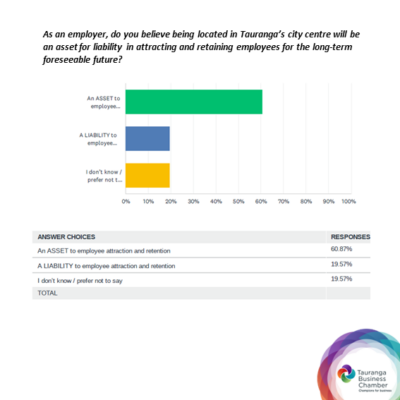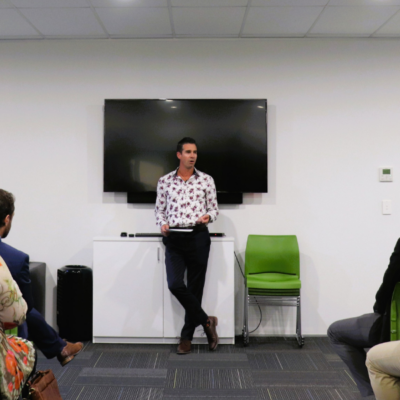Remote working has changed the way Kiwis do business. No longer is a presence in the office important and, off the back of COVID-19, companies of all sizes and stages have had to rethink their ways of working.
Now, 12 months on, the big question is, ‘Have we truly incorporated remote working into our new normal?’
Chamber member Tony Snow from Stratus Blue says, as a business owner, remote working is essential.
“Twelve months on from lockdown and entering a trans-Tasman travel bubble, remote and flexible working is strongly becoming acceptable and the ‘new norm’. There’s no doubt that COVID-19 has forced a significant upswing in the number of people who have been able to work remotely.”
We ask Tony to provide some insights into remote working and reflect on what works for him, his team and his business.
What are your thoughts around remote working?
Looking back with 20/20 vision on 2020, it is easy to see that this was the year of the yoyo, and full of ups and downs. One of the key challenges that had to be overcome was remote working. Workers were forced to work from home, even if they had not done so before. More than that, business leaders had to work out how that was going to happen.
There is a difference between flexible and remote working, due to the work types and the hours that people keep. Flexible working is offering some great advantages for some organisations from a cost, skill retention, attraction and client support perspective, whereby remote working is offering challenges from a technical perspective. You can still be flexible by working in the traditional office – offering work-life integration and productivity, and there is massive trend for the four-day work week being introduced globally.
Allowing your employees to work from home allows more work flexibly and can be a useful tool in your business continuity plan. While organisations are still allowing employees to work from home as a remote option, there are security threats with a distributed workforce and we have found a number of ‘attacks’ coming through by home browsing, gaming, video streaming and social media sites. Before you open up access to your data and confidential information, consider how to implement other measures to cover those same risks.
How have you adapted to working remotely?
At Stratus Blue we have been working remotely for a number of years (since our conception). We require mobile devices like laptops in order to work remotely and provide these for our staff, so we have more control over the security of the device and implement these measures:
- Configure the device to apply patches as they are available so it can stay up to date.
- Only allow certain programs to be downloaded and block known bad software.
- Configure regular backups.
- Configure hard-drive encryption.
Some of our clients can’t afford to offer a company device to each staff member, so prioritising devices to staff members who access more sensitive systems first, and considering what rules they would like to put in place before they can access company systems is a must.
What has working remotely meant for your staff and for productivity? What are some ways business leaders can create a positive remote working culture?
Remote working does not work for everyone. We have had rostered people in the office due to the home environments that they have (pets, children, others working from home) and we have taken advantage of video conferencing technologies to unite the team – we have set up chat channels for social conversations, as well as work interactions, we host virtual stand-up meetings, and lunch or morning tea to support social engagement.
We also get the team together once a week in office or in a remote office for hire. We preform quarterly updates in a social setting. We paid close attention to warning signs, such as decreased responses to emails or being absent in group conversations. These signals could suggest a team member might need help or encouragement to complete their tasks or they could be struggling with the new work environment or other issues, so the personnel element of working remotely adds to the technological challenges.

A big thing with us was, as leaders, we acknowledged our own limitations early on and want to learn from our staff. We are willing to adapt and learn with good humour, and this has signal to the team that we are all in this together and can help each other grow in capacity and capability. Policies, procedures are being re written, invented based on everyone’s feedback.
We have also undertaken coaching around each other’s strengths to identify what people enjoy doing and how. Does remote working fit with this and are they in the right position doing the right thing? We have made some adjustments because of this.
What is some feedback you’re getting from clients around the pros and cons of working remotely?
Companies are moving, offices are shrinking, but the use of secure and shared internet, AV technologies, WIFI and support at home is increasing.
We are working on policies and working with partners to provide IT support in home environments outside of ‘traditional’ work hours. Remote working is also leading to flexible working arrangements, where clients are seeing an increase in support coverage for their clients without additional costs. The increase of the four-day working week is also expanded across the world. Getting people together and keeping the communication for projects and ideas is a common issue, and hence the use of social stand ups and regular check ins is assisting with this.
One strategy we have seen is an increase in meeting rooms for hire where business work in that for a day by bringing all their people together to get the real time social interaction as well as a reduction in real estate and commercial premises. More Shared Spaces and serviced offices, for example where the Tauranga Chamber of Commerce is, are becoming a popular option, but that does offer physical and cyber security risks as well.
Key things to understand with remote working:
- Expecting virtual work to run as it would in the office, with a basic nine-to-five schedule, is a mistake.
- It is important to solve all the usual hurdles – will the technology work, will your business be able to maintain data security, can employees establish safe and healthy home offices?
- It’s also important to make sure employees feel they can work effectively in such a setup. Communicate regularly, be transparent, offer flexibility and provide ongoing feedback to make hybrid team working a success.
- Take advantage of video conferencing technologies to unite the team. Set up chat channels for social conversations, as well as work interactions, host a virtual lunch or morning tea to support social engagement.
- Leaders who can acknowledge their own limitations and show how they are willing to adapt and learn with good humour, will signal to the team that you are all in it together and can help each other grow in capacity.
- Managers should pay attention to signs such as decreased responses to emails or being absent in group conversations. These signals could suggest a team member might need help or encouragement to complete their tasks or they could be struggling with the new work environment or other issues.
- Take the opportunity to also investigate continuous training and professional development with a plethora of online courses being on offer.
















































